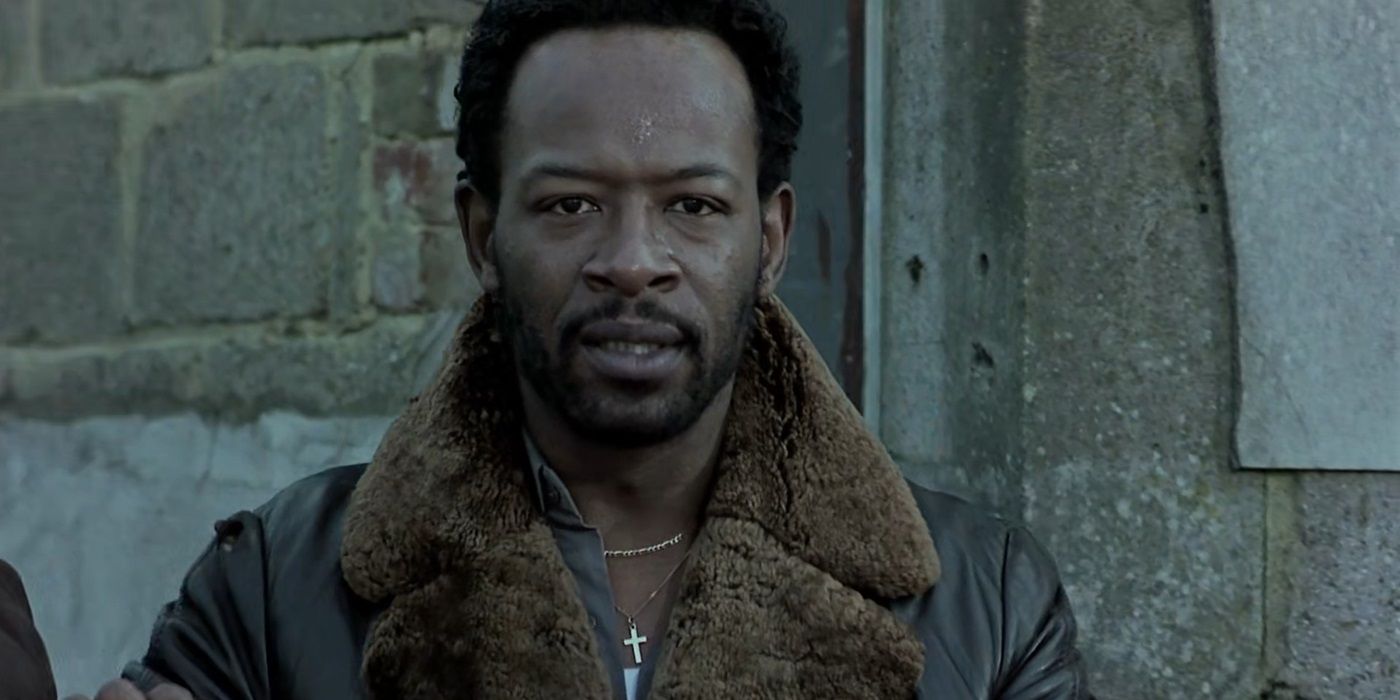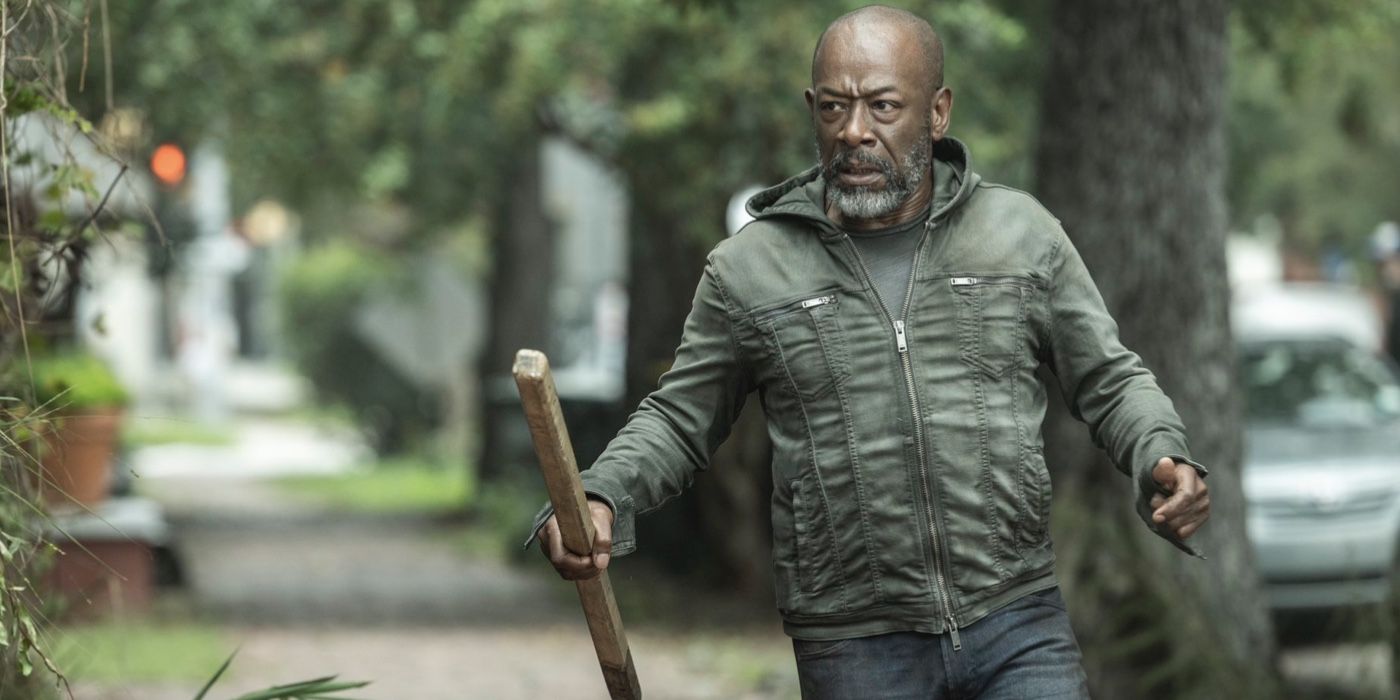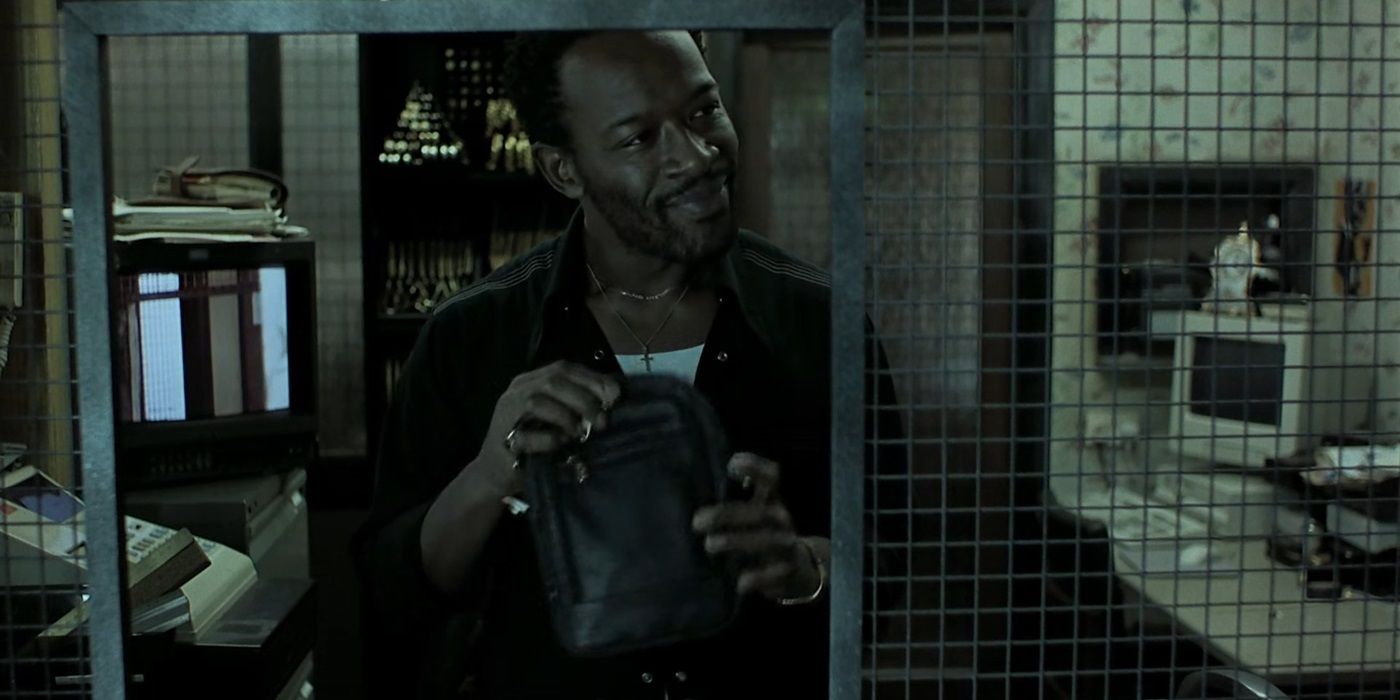Actor Lennie James has been a standout on The Walking Dead since the beginning. He gave another great performance in an early Guy Ritchie classic.
With Fear the Walking Dead having ended, his presence is surely missed. However, he may conceivably return in some future project. That arrives on top of an already impressive career stretching back decades and encompassing dozens of notable projects. Their ranks include a very notable entry: Guy Ritchie’s comedic crime thriller Snatch. Like The Walking Dead, it’s primarily an ensemble piece, with a number of prominent actors turning in strong performances. James stands out in the same way, with a very different character. With Ritchie’s The Ministry of Ungentlemanly Warfare in theaters, now is a good opportunity for Walking Dead fans to catch an early home run from James.
Snatch Is an Early Winner from Guy Ritchie

Ritchie broke out in a big way with his feature film debut: 1998’s Lock, Stock and Two Smoking Barrels which cut through the malaise of post-Pulp Fiction thrillers with a genuinely fresh look at the genre. Snatch features multiple members of the London underworld engaged in a series of convoluted schemes surrounding a gigantic stolen diamond. The Byzantine plot is part of the fun, as Jason Statham’s amiable boxing promoter tries to weave his way through a consortium of corrupt bookies, murderous crime bosses, short-con hustlers, and one constipated dog in search of the diamond.
Ritchie lets his expected cast of colorful characters bounce off each other in pursuit of their various goals, using machine-gun dialogue and copious twists and turns. Snatch was particularly notable at the time of release for reasons that have nothing to do with what’s onscreen. Ritchie married pop star Madonna in late 2000, about a month before the movie’s US release and several months after the birth of their son that August. The resulting tabloid tsunami rendered the film itself something of an afterthought for most of the people covering it. At the time, it was considered something of a carbon copy of Lock, Stock, owing largely to what became Guy Ritchie’s auteurial style.
Time has rendered the film’s charms far more visible. With Lock, Stock under his belt, Ritchie approaches his work in Snatch with more confidence and verve. The madcap plot threads stick more closely together, and the dialogue is a little sharper than the previous film. The large cast is in top form, dominated by Brad Pitt’s incomprehensible bare-knuckle boxer, but also featuring great turns from the likes of Benicio del Toro, Dennis Farina, Stephen Graham and Vinnie Jones among others. Statham is the straw that stirs the drink, and along with Lock, Stock, Snatch became the film that established him as a bankable star.
Lennie James’ Sol Is the Opposite of The Walking Dead’s Morgan Jones

The resulting disaster is not only one of the funniest scenes in the film, but kicks the second act into overdrive as the scramble for the diamond becomes paramount. Even funnier is that it works. Somehow, some way, Sol and his cohorts end up with the big MacGuffin. That suddenly makes him the more important character onscreen, just as the various plot threads start flying together. At the same time, Sol and his cohorts remain largely sympathetic figures, despite their self-defeating idiocy. While greedy, they have firm moral lines — they don’t want to hurt anyone, for starters — which puts them head and shoulders above most of the film’s other crooks and swindlers.
Sol and his cohorts are also willing to quit while they’re ahead, as well as knowing when they’re beaten, something their fellow criminals seem to have a hard time with. That ensures him a place among the tiny handful of survivors among the main protagonists. As is par for the course with a Ritchie crime caper, the fatality rate is high. In light of that, Sol and his friends are lucky to spend a quiet stretch in prison at the end of it all.
It’s the exact opposite of Morgan, at least on the surface. Sol is amiable and friendly, but superficial and shallow, whereas Morgan Jones is cautious, but containing deep reservoirs of understanding. He always tries to do the right thing, even when it seems impossible, and even when he falls short of his own standards. Sol just wants a lot of money very quickly, and he hasn’t given a single thought to what might happen tomorrow.
Sol and Morgan Jones Draw Strong Performances from Lennie James

They end up with the diamond for a few precious moments before several more aggressive parties move in to claim it. Ritchie’s early movies delight in small details, and his chaos-laden stories typically hinge on seemingly incidental exchanges. Sol’s big hold-up, for instance, hinges on a seemingly incidental comment about a boxing match. The film gathers a considerable number of similar connections, then pulls them together at just the right time and in just the right way to keep the audience guessing. Sol is key part of that, and a fair amount of the story’s success hinges on James’ performance. He’s never less than sympathetic, even when he’s reeling from self-inflicted wounds, and it helps Snatch succeed in the same way as it helps The Walking Dead franchise.
The two performances occur at either end of the actor’s career: Snatch in his early days as an up-and-comer, and The Walking Dead as an experienced veteran and taking place over the course of over ten years. Together, they show just how much the actor can bring to a given script, creating a memorable character who can hold the entire affair together without necessarily having to take center stage. Fans have almost certainly seen the last of Sol, but Morgan could always turn up again in some future project. If he does, the actor’s work in Snatch carries far more insight into it than it may seem.





